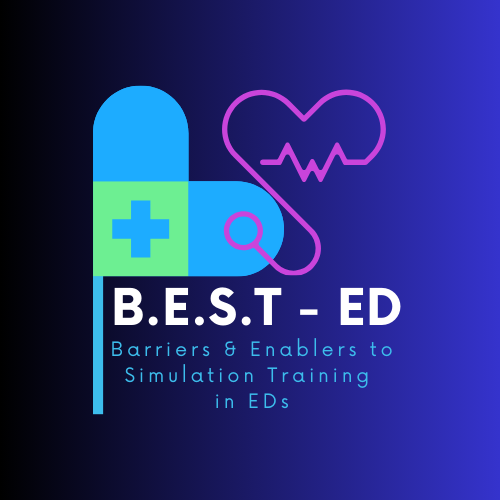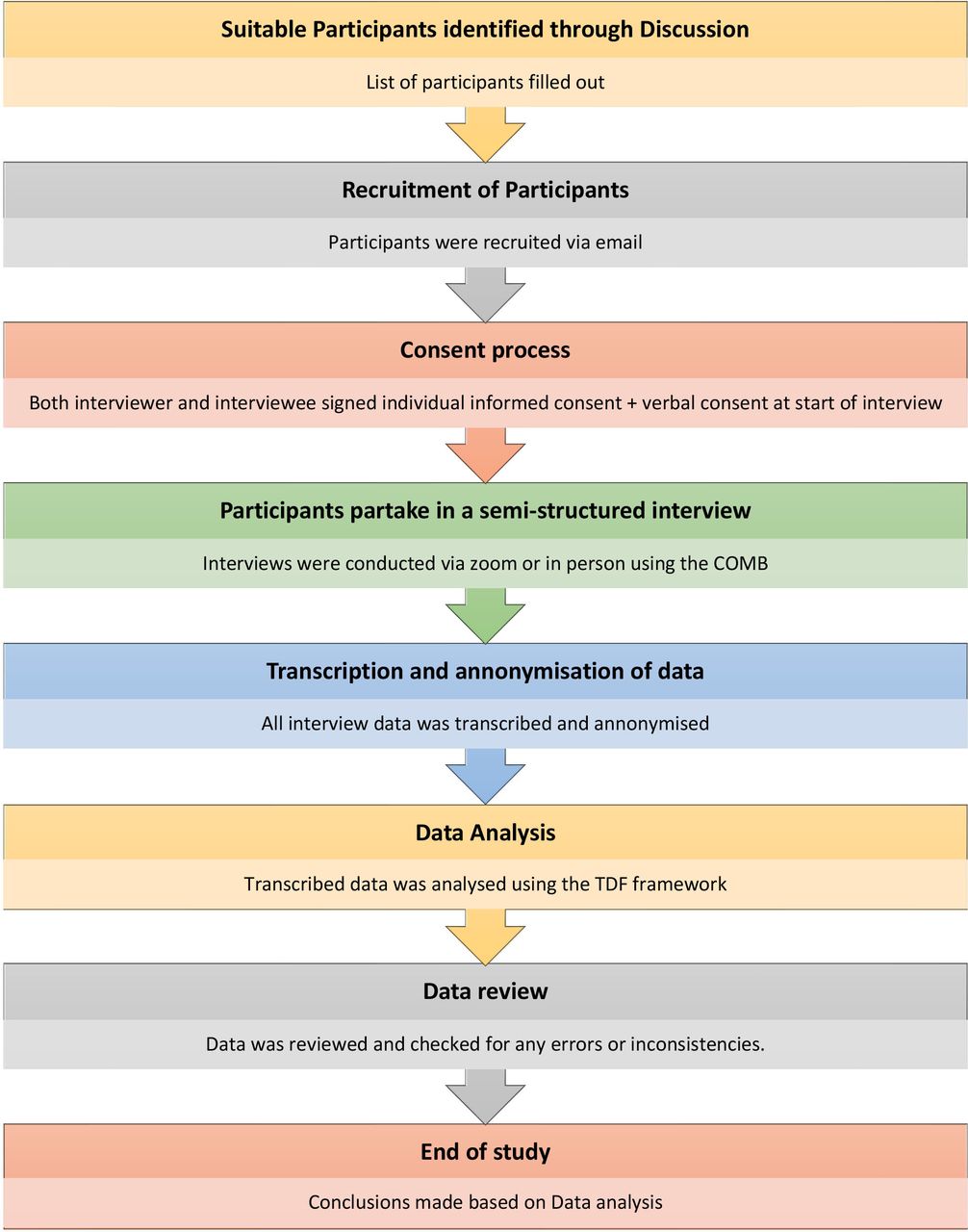https://bmjopen.bmj.com/content/13/9/e073099

Barriers and Enablers to Simulation based Training in Emergency Departments.

PROJECT LEAD: Marcus Jee
CONSULTANT LEADS: James Binchy & John O’Donnell
ITERN LEAD: Etimbuk Umana
STUDY OUTLINE:
BACKGROUND:
Simulation is a technique where real-life experiences are recreated and replaced with guided ones, creating a controlled learning space to practice a variety of skills before entering a real world setting. It can take on many forms which can be used to recreate a specific scenario or event for the intent of training in a safe environment. Recent studies have demonstrated that simulation-based training (SBT) not only improves knowledge retention, but it is also effective in modifying safety attitudes and improving patient outcomes.
The use of SBT to enhance training has gained traction within the field of emergency medicine (EM). A subbranch of SBT frequently used in EM is in situ simulation. This involves SBT to be delivered on-site, and integrated into the real environment, using real equipment and the establishment’s real staff. This blend of simulation within the real working environment offers unique opportunities for EM physicians to train with interdepartmental teams while at work, within their real work setting, enhancing departmental teamwork while learning new skills and procedures, as well as maintaining competencies, and train for crisis management.
In many instances, although recent literature is growing, it has been difficult to completely assess the challenges in establishing SBT programmes. This is likely, in part, due to the nature of simulation training and data extrapolated from qualitative means. The study aimed to explore the perspectives of various stakeholders, including experts, doctors, nurses, clinicians, administrators, educators, managers and others, to gain a comprehensive understanding of the barriers and enablers of using SBT and in situ simulation within an emergency department (ED) setting.
OBJECTIVE:
- To identify the barriers of running an in situ simulation programme or an SBT programme in an ED.
- To investigate the enablers of running an in situ simulation programme or an SBT programme in an ED.
STUDY: A qualitative research study based on semi structured interviews will be employed. We plan to
explore and analyse the thoughts, experiences and opinions of both trainees and
trainers internationally based on a developed framework. This study will be reported in line with the Standards for Reporting Qualitative Research.

DATA & COHORT: Participants are recruited across multiple international sites. Local participants will be identified by the author, national participants will be recruited with the help of the Irish Trainee Emergency Research Network(ITERN). International participants will be selected via recommendation of an advisory committee. The participants selected will eitherbe known to use simulation for the purpose of medical education or have a good understanding of how an ED functions (level 1 and 2 EDs).
RESULTS: The results will be published in a relevant journal accessible to those who work in emergency medicine. The results will also be presented at national meetings, such as IAEM
AUTHORSHIP & COLLABORATIONS: The main Authors will be of Marcus Jee and his team. All who participate under the flag of ITERN will be given the collaborator status in the publication. These names will be indexed in pubmed when the publication is finalised.
TIMELINE: Study Completed!
https://bmjopen.bmj.com/content/13/9/e073099
Who do I contact if I would like to take part in this study?
ITERN: iterncommittee@gmail.com
Marcus Jee: marcusjee.med@gmail.com
If Im already involved as a participant. what do I do?
IF you are already involved in this study, You will be invited formally via email.
CURRENTLY, THIS STUDY HAS COMPLETED. BELOW IS THE LINK TO THE PUBLICATION
https://bmjopen.bmj.com/content/13/9/e073099
Collaborators Bronwyn R McDermott, Dillon Michelle, Ackloo Rajnita, Gobin Avishka, Qurratalain Fatimah, Davis Jamie, Eduard Turcuman, Roche F Adam, Lee Solmi, Madden Marian, Torpey Tracey, McMackie Eamonn, Brennan Simone, Ambyr Reid